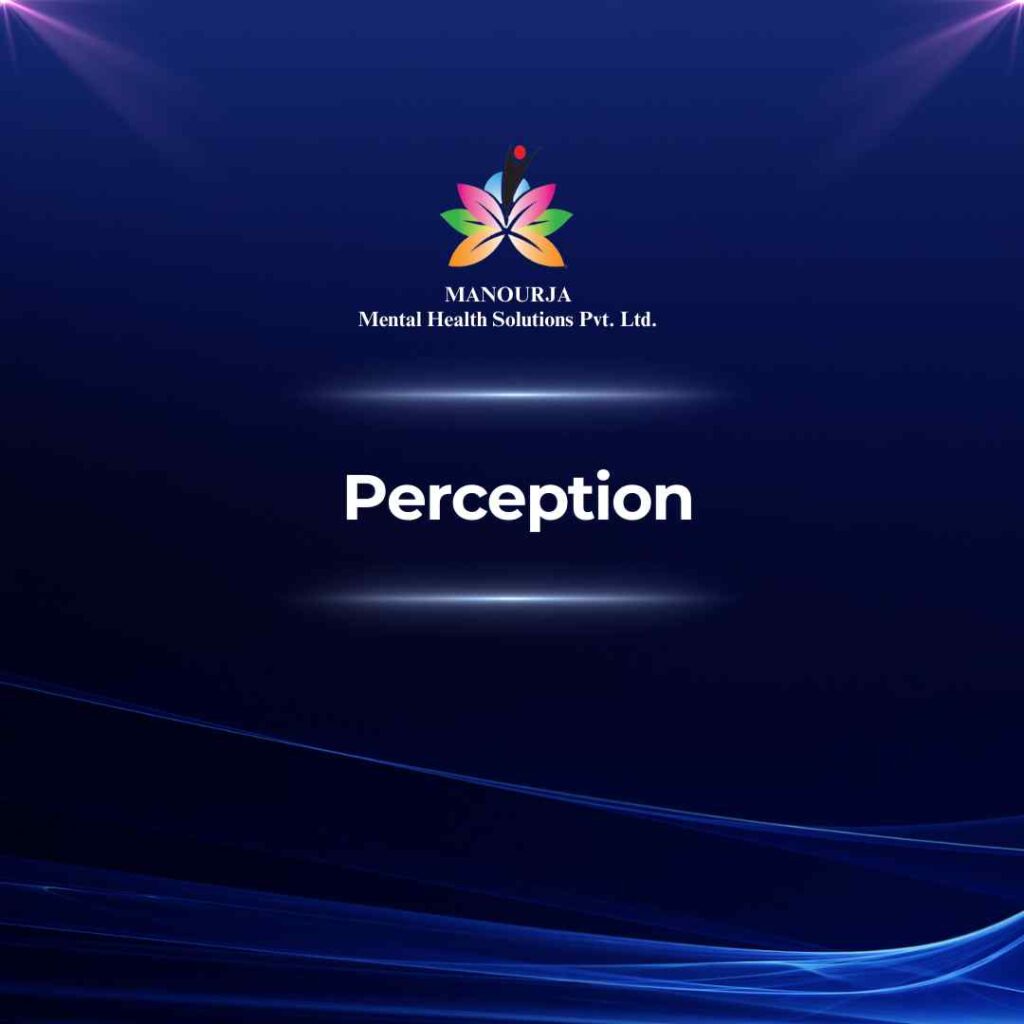Perception

“Perception” refers to the way individuals interpret and make sense of sensory information from their environment. This includes how they perceive sights, sounds, tastes, smells, and tactile sensations. Perception involves the brain’s processing of sensory inputs to create a coherent understanding of the world around us.
Perception as a Sign and Symptom of Mental Illness
Perception can be affected in various ways as a symptom of mental illness, particularly in conditions where there are disturbances in sensory processing, cognition, or emotional regulation. Changes in perception can significantly impact how individuals interact with their environment and perceive reality.
Mental Illnesses with Perception as Symptoms
Perception can be altered or affected in the following mental health disorders:
- Psychotic Disorders: In schizophrenia and other psychotic disorders, individuals may experience perceptual disturbances such as hallucinations. Hallucinations may include smelling, seeing, tasting, hearing or feeling things that are not actually present. These sensory perceptions can be vivid and intense, leading individuals to believe they are real despite lacking external stimuli.
- Bipolar Disorder: During manic or depressive episodes, individuals with bipolar disorder may experience perceptual disturbances, including heightened senses or alterations in how they perceive their surroundings.
- Substance Use Disorders: Intoxication with substances such as hallucinogens or stimulants can alter perception, leading to hallucinations or distortions in sensory experiences.
- Post-Traumatic Stress Disorder (PTSD): Individuals with PTSD may experience altered perceptions related to triggers or reminders of traumatic events. This can include heightened sensory awareness, dissociative experiences, or flashbacks.
- Depersonalization/Derealization Disorder: These dissociative disorders involve disturbances in perception of self (depersonalization) or the external world (derealization). Individuals may feel detached from their own body or surroundings, leading to a sense of unreality.
- Neurocognitive Disorders: Conditions such as Alzheimer’s disease or other forms of dementia can lead to perceptual disturbances as cognitive functions decline. This can include misinterpretations of visual or auditory stimuli.
- Anxiety Disorders: During episodes of severe anxiety or panic, individuals may experience distortions in perception, including heightened sensitivity to sensory inputs or a sense of detachment from reality.
Managing and Treating Perception Disturbances
Treatment for perception disturbances depends on the underlying cause and may include:
- Medication: Antipsychotic medications may be prescribed to manage hallucinations and perceptual disturbances in psychotic disorders. Other medications targeting underlying conditions, such as mood stabilizers or antidepressants, may also be used.
- Therapy: Cognitive-behavioral therapy (CBT), supportive therapy, and psychoeducation can help individuals understand and cope with perceptual disturbances, improve reality testing, and reduce distress.
- Environmental Modifications: Creating a safe and supportive environment, minimizing sensory triggers, and promoting relaxation techniques can help manage perceptual disturbances in daily life.
- Education and Support: Providing education about the nature of perception disturbances and involving family members or caregivers in treatment can improve support networks and treatment outcomes.
Recognizing changes in perception as a symptom of an underlying mental health condition is essential for accurate diagnosis and effective treatment planning. Addressing these disturbances through comprehensive and individualized approaches can help individuals manage symptoms, improve functioning, and enhance overall quality of life.
At MANOURJA, we believe in the transformative power of counseling. Our experienced therapists offer a safe and supportive space where you can explore your thoughts, emotions, and challenges. Through personalized counselling sessions, we’ll work together to develop coping strategies, build resilience, and achieve lasting positive change. Discover the path to a healthier, happier you with MANOURJA counselling services.
MANOURJA Rehabilitation Services
At MANOURJA, we’re dedicated to helping you in rebuild your life, after difficult times. Our rehabilitation services focus on understanding what you need to move forward, whether you’re recovering from addiction, trauma, or any psychological – social challenges. We create personalized plans, that are all about helping you, regain your strength and find hope again. With a caring team by your side, you’ll have the support to make real progress and take steps toward a brighter, healthier future.
